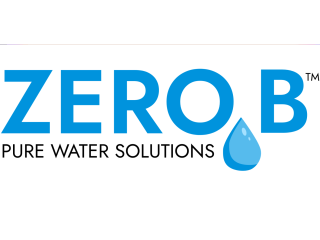REGULATORY GUIDE FOR AGRI DRONES IN INDIA & KRISHIVIMAN'S ROLE Private individual
4 weeks ago Electronics Faridabad 13 viewsLocation: Faridabad
Price: Contact us
In the rapidly evolving landscape of Indian agriculture, drones are emerging as pivotal tools for innovation and efficiency. However, the integration of these unmanned aircraft systems (UAS) into the sector is not just about technological advancement but also about navigating the complex regulatory environment established by the Directorate General of Civil Aviation (DGCA). This guide delves into the intricacies of these regulations, offering insights for drone enthusiasts and highlighting Krishiviman.com's position as a leading agricultural drone manufacturer in India.
The DGCA's Regulatory Framework
The DGCA laid down a comprehensive set of guidelines in October 2014 to govern the use of drones in India. These regulations cover a wide array of aspects, from securing permissions to ensuring safety and privacy. It's crucial for drone operators in the agricultural sector to familiarize themselves with these rules to operate within legal boundaries and harness the full potential of drone technology.
Drone Classification and Registration
Drones are categorized based on their weight and intended use, influencing their registration requirements and operational permissions. Nano drones, the smallest category, weigh less than 250 grams and enjoy more freedom with minimal registration needs. Micro drones, weighing between 250 grams and 2 kilograms, also benefit from relaxed regulations for certain operations. However, for drones classified as small (2 to 25 kilograms), the requirements become more stringent, necessitating formal registration with the DGCA and specific approvals for flight operations.
Operational Limitations and Permissions
The DGCA's guidelines specify restricted zones and operational constraints to ensure public safety and national security. Areas around airports, military bases, and other sensitive locations are off-limits for drone activities. Additionally, special permissions are required for flights in controlled airspace or during nocturnal hours. Adhering to these guidelines is essential to prevent legal repercussions and ensure the safety of drone operations.
Data Privacy and Security
With the capability to capture detailed imagery and data, drones bring forth concerns regarding privacy and data security. Operators are mandated to implement measures, possibly including encryption, to safeguard the information collected during their flights. This is particularly significant in agriculture, where drones collect sensitive data about farms, crops, and livestock.
Insurance and Liability
Given the potential risks associated with drone flights, including accidents and damage to property or individuals, obtaining insurance is advisable for drone operators. Insurance coverage can mitigate financial liabilities arising from unforeseen incidents, ensuring that both the operator and affected parties are protected.
Compliance with Agricultural Regulations
Drone use in agriculture is not only governed by aviation regulations but also by agricultural laws. These encompass safe pesticide application, environmental protection, and adherence to land use policies. Ensuring compliance with these regulations is vital for sustainable and lawful drone operations in the agricultural sector.
The Importance of Staying Informed
The regulatory landscape for drones is dynamic, with frequent updates and changes. For drone operators, staying informed about the latest regulations and technological advancements is crucial. This ensures that their operations remain compliant and take advantage of the latest innovations for increased efficiency and productivity.
Krishiviman.com: Pioneering Agricultural Drone Technology in India
In the midst of these regulatory navigations and technological advancements, Krishiviman.com stands out as a leading manufacturer of agricultural drones in India. Their commitment to quality, innovation, and compliance positions them as a trusted partner for farmers and agricultural enterprises looking to leverage drone technology. With a range of products designed to meet the diverse needs of the agricultural sector, Krishiviman.com not only offers cutting-edge solutions but also ensures that their drones are compliant with the latest regulations, offering peace of mind to their clients.
Conclusion
The integration of drone technology into Indian agriculture presents a promising avenue for enhancing productivity and efficiency. However, it requires careful navigation of the regulatory framework established by the DGCA. By understanding these regulations and partnering with reputable manufacturers like Krishiviman.com, drone operators can unlock the full potential of this technology, driving innovation and growth in the agricultural sector. As we move forward, the symbiosis between technological advancement and regulatory compliance will continue to shape the future of agriculture in India, making it more sustainable, efficient, and productive.












